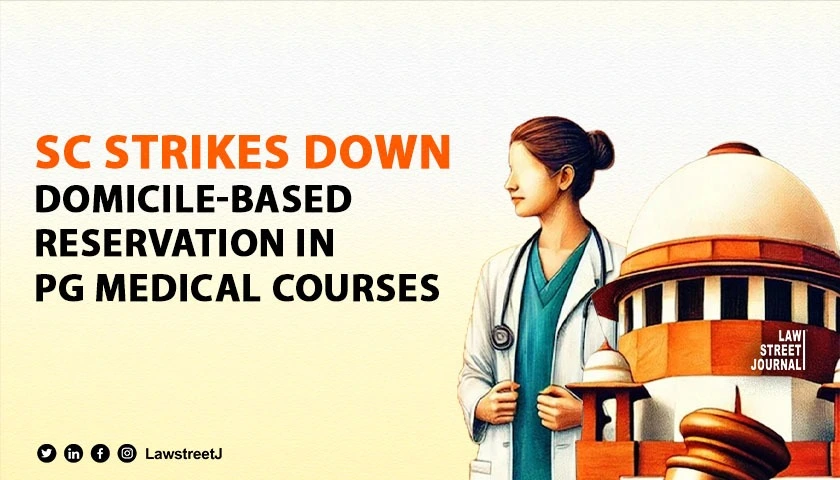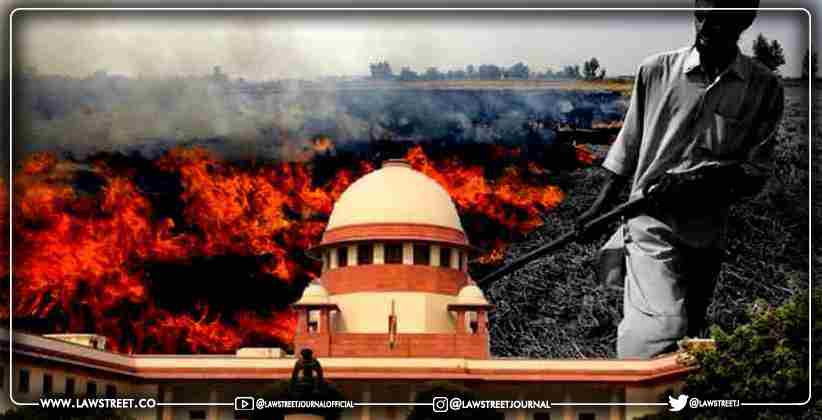NEW DELHI: Observing that all residents of the country are domicile of India, the Supreme Court on Wednesday ruled that domicile-based reservations in postgraduate medical courses are constitutionally invalid for being in violation of right to equality under Article 14 of the Constitution.
A bench of Justices Hrishikesh Roy, Sudhanshu Dhulia and S V N Bhatti declared that such a reservation in PG medical courses is not permissible.
SC Rules Domicile-Based Quota in PG Medical Admissions Unconstitutional
The court said the very concept of a provincial or state domicile in India is a misconception as there is only one domicile in India, which is referred to as domicile in the territory of India as given under Article 5 of the Constitution.
"We are all domiciled in the territory of India. We are all residents of India. Our common bond as citizens and residents of one country gives us the right not only to choose our residence anywhere in India, but also gives us the right to carry on trade and business or a profession anywhere in India. It also gives us the right to seek admission in educational institutions across India," the bench said.
PG Medical Seats: Supreme Court Says No State-Based Reservation, Merit Prevails
If such a reservation is permitted then it would be an invasion on the fundamental rights of several students, who are being treated unequally simply for the reasons that they belong to a different State in the Union!, the bench said.
"This would be a violation of the equality clause in Article 14 of the Constitution and would amount to a denial of equality before the law," the court said.
The concept of domicile acquires importance only when within a country there are different laws or more precisely different systems of law operating. “But this is not the case in India. Each citizen of this country carries with him or her, one single domicile which is the ‘Domicile of India’. The concept of regional or provincial domicile is alien to the Indian legal system," the bench said.
The bench said that postgraduate medical admissions under state quotas must be determined only on the basis of merit in the National Eligibility cum Entrance Test (NEET).
“We are all domiciles in the territory of India. There is nothing like a provincial or state domicile. There is only one domicile. We are all residents of India," the bench said.
The judgment was authored by Justice Dhulia on part of the bench.
The court looked into the issue on a reference made by a two-judge bench arising out of such a reservation in Government Medical College and Hospital, Chandigarh.
The bench opined that any form of domicile-based restriction at the postgraduate level disturbed the foundational principle of the Constitution, which granted the right to seek admission to educational institutions across the country.
It said that some degree of domicile-based reservation may be permissible in undergraduate (MBBS) admissions. However, such reservation cannot be extended to postgraduate courses, where specialisation and expertise are very important, it said.
The bench said it had already been held that at PG level merit cannot be compromised, although residence- based reservation can be permissible to a certain degree in UG or MBBS course.
"Why residence-based reservation is impermissible is for the reason that such reservation runs counter to the idea of citizenship and equality under the Constitution," the bench said.
The court pointed out Article 15 speaks of ‘place of birth’, whereas Article 16 states that no citizen shall be discriminated, inter alia, on the ground of ‘residence’.
"State cannot grant reservation in public employment on the basis of residence in that State. The exception carved out under Clause 3 of Article 16, enables only the Parliament to make a law prescribing a requirement of residence for State employment," it said.
In its judgement, the court, however, clarified said this verdict will not affect the domicile reservation already granted. “Students who are undergoing PG courses and those who have already passed out from such residence category will not be affected,” the court said.
[Read Judgment]







![Order to appoint One Man Committee of Justice (Retd.) Lokur for the Prevention of Stubble Burning Kept in Abeyance by SC itself [READ ORDER]](/secure/uploads/2020/10/lj_8849_Order_to_appoint.jpeg)







